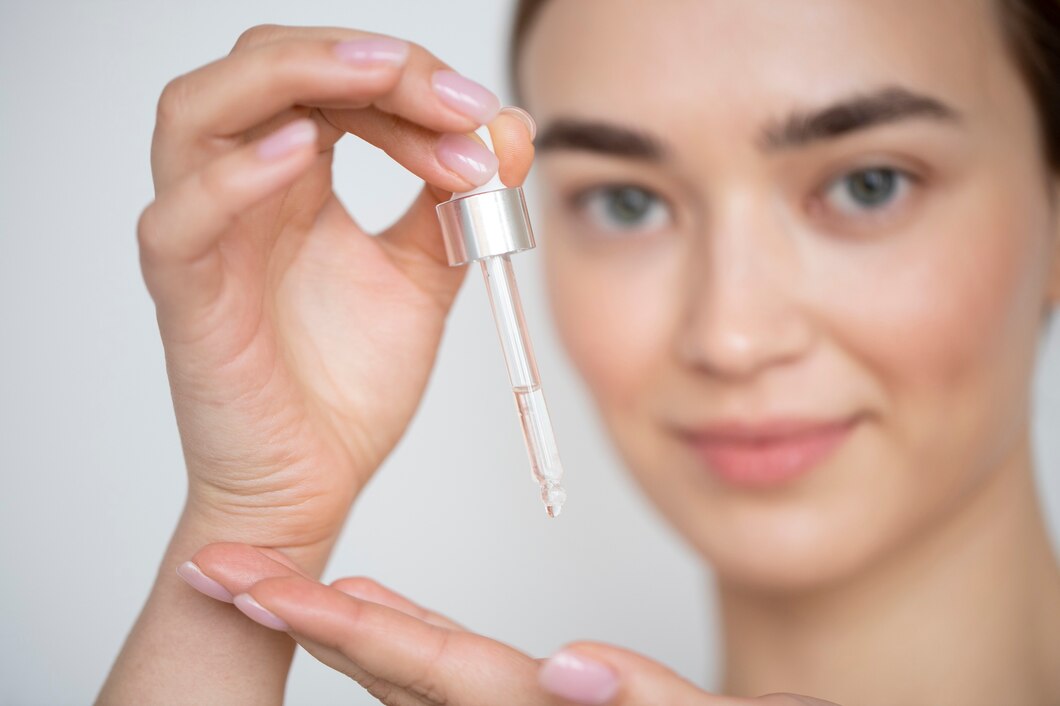In the world of skincare, few ingredients have garnered as much acclaim as retinoids. Celebrated for their transformative effects on the skin, retinoids are often hailed as the gold standard in anti-aging and glow-enhancing treatments. But what exactly are retinoids, and how can they help you achieve radiant, youthful skin? Here’s what you need to know about these powerful skincare ingredients.
What Are Retinoids?
Retinoids are a class of chemical compounds derived from vitamin A. They work by accelerating skin cell turnover, promoting the shedding of old, dull skin cells, and encouraging the production of new, healthy ones. This process not only helps improve the texture and tone of your skin but also addresses a variety of skin concerns, from fine lines and wrinkles to acne and hyperpigmentation.
Types of Retinoids
Retinoids come in various forms, ranging from over-the-counter options to prescription-strength treatments. Here’s a breakdown of the most common types:
- Retinol: Retinol is the most common over-the-counter retinoid. It’s less potent than prescription retinoids, making it a great starting point for those new to retinoid use. Retinol is gradually converted into retinoic acid (the active form) by the skin, which makes it milder and better tolerated by sensitive skin.
- Retinyl Palmitate: This is an even milder form of retinoid and is often found in products for sensitive skin or as a first step into retinoid use. It requires multiple conversions before it becomes active in the skin, making it less potent than retinol.
- Adapalene (Differin): Originally available by prescription only, adapalene is now available over the counter. It’s often used to treat acne and is less irritating than some other retinoids, making it suitable for beginners.
- Tretinoin (Retin-A): Tretinoin is a prescription-strength retinoid and is significantly more potent than over-the-counter options. It’s highly effective in treating acne, fine lines, and sun damage but can cause irritation, especially when first introduced to the skin.
- Tazarotene: Another prescription retinoid, tazarotene is often used for treating more severe cases of acne and psoriasis. It’s very potent and can be quite irritating, so it’s typically recommended for those with experience using retinoids.
The Benefits of Retinoids
Retinoids offer a wide array of benefits for the skin, making them a versatile addition to any skincare routine:
- Reduces Fine Lines and Wrinkles: Retinoids are renowned for their anti-aging properties. By boosting collagen production and promoting cell turnover, they help reduce the appearance of fine lines and wrinkles, leading to smoother, more youthful-looking skin.
- Brightens Skin Tone: Regular use of retinoids can improve skin tone by fading dark spots, hyperpigmentation, and post-inflammatory marks left by acne. The result is a more even, radiant complexion.
- Fights Acne: Retinoids help prevent clogged pores, reducing the formation of blackheads and pimples. They also have anti-inflammatory properties, making them effective in treating active breakouts.
- Improves Skin Texture: By accelerating cell turnover, retinoids smooth rough patches and improve overall skin texture, leaving your skin feeling soft and supple.
- Enhances Glow: Retinoids promote the exfoliation of dead skin cells, revealing fresh, glowing skin underneath. This increased cell turnover helps maintain a luminous complexion.
How to Use Retinoids Safely
While retinoids can do wonders for your skin, they must be used correctly to avoid irritation and maximize their benefits. Here are some tips for incorporating retinoids into your skincare routine:
- Start Slowly: If you’re new to retinoids, start with a low concentration and use it just once or twice a week. Gradually increase the frequency as your skin builds tolerance. This helps minimize the risk of irritation, dryness, and redness.
- Apply at Night: Retinoids can make your skin more sensitive to sunlight, so it’s best to apply them in the evening. Always follow up with sunscreen during the day to protect your skin from UV damage.
- Moisturize: Retinoids can be drying, especially when you first start using them. Be sure to follow up with a moisturizer to keep your skin hydrated and to counteract any dryness.
- Be Patient: It can take several weeks or even months to see the full benefits of retinoids. Consistency is key, so stick with it and give your skin time to adjust.
- Avoid Mixing with Certain Ingredients: Retinoids can be irritating when combined with other potent ingredients like exfoliating acids or benzoyl peroxide. If you use other active ingredients, consider alternating them with your retinoid or using them at different times of the day.
Who Should Avoid Retinoids?
While retinoids are beneficial for most people, there are certain situations where they should be avoided or used with caution:
- Pregnancy: Retinoids are not recommended during pregnancy or breastfeeding due to the risk of birth defects. Always consult with your healthcare provider before using retinoids if you’re pregnant or planning to become pregnant.
- Sensitive Skin: If you have extremely sensitive skin or conditions like rosacea or eczema, retinoids may cause irritation. Consider using a milder form of retinoid or consulting with a dermatologist to find the best option for your skin type.
Retinoids are a powerful tool in the pursuit of glowing, youthful skin. Whether you’re looking to smooth fine lines, brighten your complexion, or tackle stubborn acne, incorporating a retinoid into your skincare routine can deliver impressive results. Just remember to start slowly, protect your skin from the sun, and be patient as you unlock the glow-enhancing powers of this remarkable ingredient.








